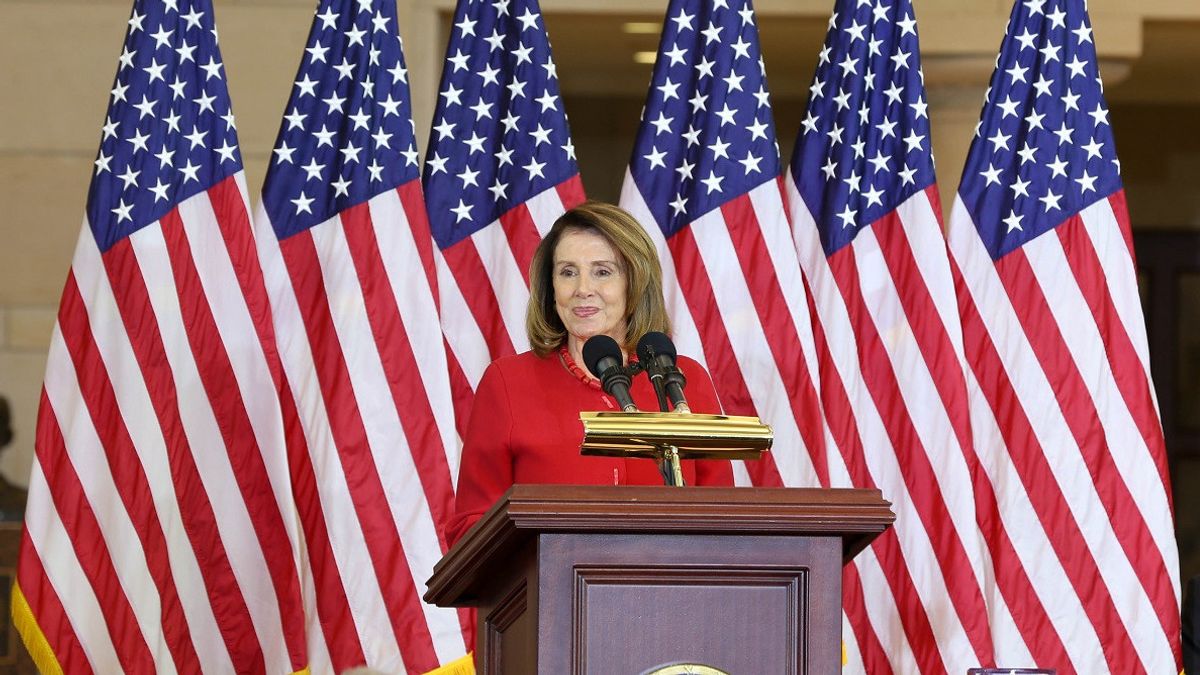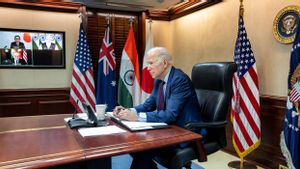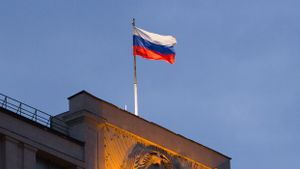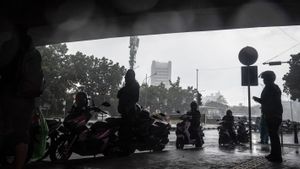JAKARTA - The United States government fears China could declare a no-fly zone over Taiwan ahead of a potentially risky visit by US House Speaker Nancy Pelosi, potentially escalating tensions in the region further, a US official said.
China could also respond by flying fighter jets further into Taiwan's self-declared air defense zone, which could trigger a response from Taiwan and the US, the official added. They did not specify a possible response.
Nancy Pelosi is known to have planned a trip to Taiwan in the coming weeks, according to three sources familiar with the planning process. Pelosi will become the highest-ranking US lawmaker to visit Taiwan in 25 years.
The Chinese Embassy in Washington referred CNN to a statement from a Foreign Ministry spokesman, expressing firm opposition to Pelosi's possible visit, when asked to comment on airspace issues. The Financial Times first reported on Pelosi's planned visit.
In this regard, President Joe Biden cited concerns from the US military about Pelosi's possible trip earlier this week.
"I don't think the military thinks it's a good idea right now, but I don't know what the status is," Biden said on Wednesday when asked if it was a good idea for Pelosi to travel to the self-governing island.
Pelosi said it was important to show support for Taiwan on Thursday, but said she would not discuss any travel plans, calling for security concerns. Pelosi said she heard "anecdotally" of Biden's comments about his possible visit, but said she had not heard anything from the President in person.

"I think what the President said maybe the military was afraid that my plane would be shot down or something. I don't know exactly," Pelosi said.
Separately, Colonel Dave Butler, a spokesman for the Joint Chiefs of Staff, said the military was "generally" briefing decision-makers on the military's assessment. "We talked about what the enemy might do, discussed logistics and military plans and readiness," Butler said.
However, he declined to say whether Chairman of the Joint Chiefs of Staff General Mark Milley spoke to Pelosi about travel plans to Taiwan or not.
Meanwhile, State Department officials also have some concerns, the two sources said. State Department spokesman Ned Price parried questions about the trip on Thursday, calling it "hypothetical" at this point.
"I'm not going to offer any advice from the podium," Price said when asked about the State Department's position on a possible visit.
Price reiterated that President Biden's administration is still sticking to one China policy, noting that the US has no diplomatic relations with Taiwan but has "strong unofficial" ties with the island.
Opposing Pelosi's possible visit, Chinese foreign ministry spokesman Zhao Lijian, said Tuesday, it "would seriously violate the one China principle and the provisions of the three China-US joint communiqués and jeopardize China's sovereignty and territorial integrity."
A spokeswoman for Taiwan's official DC office, Sabina Chang, told CNN that Taiwan "has not received any information about House Speaker Nancy Pelosi's planned visit to Taiwan."
It is known that China has sent warplanes to Taiwan's air defense zone identification zone many times in recent months, an act that does not violate international law but which usually results in Taiwan taking preventive defensive measures, including occasionally ruffling it. the fighter jet.
However, the Chinese planes have not entered the island's territorial airspace - an area that stretches 12 nautical miles from its coastline. Meanwhile, the State Department has asked China to stop its intimidation of Taiwan.
VOIR éGALEMENT:
Tensions between Washington and Beijing over the Taiwan issue have risen in recent months. The Chinese Communist Party has long claimed Taiwan governs democratically as part of its territory and has repeatedly vowed to "reunite" the island of 24 million people - by force if necessary - despite never ruling it.
Meanwhile, the United States has committed to providing Taiwan with the means to defend itself, although recent arms sales to Taiwan have been slow to arrive, which has raised concerns among US lawmakers.
The English, Chinese, Japanese, Arabic, and French versions are automatically generated by the AI. So there may still be inaccuracies in translating, please always see Indonesian as our main language. (system supported by DigitalSiber.id)












